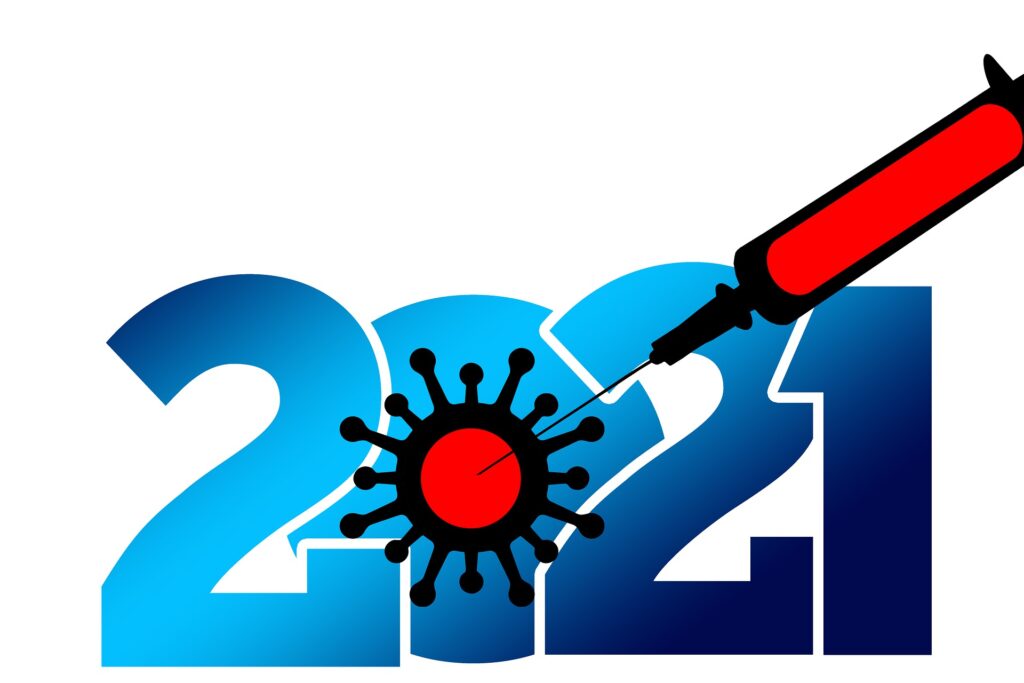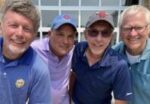I suppose a lot of us kept lists last year.
I made one, called “Where the Money Is,” so my survivors would know what assets they would have in case I died of the coronavirus. I still have that list and most of those assets.
I also have a notebook that lists all my comings and goings for 14 months of the pandemic. Every time I left the house or if someone visited, I made a note. The idea was, if I got sick, it would help identify other people I might have infected.
The notes started Thursday, March 12, 2020, and my final entry was May 20 of this year. I have more pages left in the awful event that I need to lock the doors and fear all strangers again.
My pandemic notebook reminds me how cautious I was during that time. From Feb. 4 to Feb. 17, for example, I left the house just three times – to get my first vaccination shot on Feb. 10, to have lunch during off-hours at a deserted restaurant on Feb. 13 and for a routine doctor’s appointment on Feb. 16.

I know people who didn’t leave their homes at all during that stretch. To this day, they have their groceries delivered and they have not been inside a restaurant, a church, or a movie theater. Their risks and concerns are greater than mine.
My notebook says I went to a couple of funerals in the winter and spring. I had a bunch of days in quarantine in mid-October while I was waiting for results from a Covid test. I drove out to Organic Resources for dozens of loads of compost and mulch for my backyard garden. Whatever it was, I wrote it all down. But mostly, I stayed home.
What kept me going during those 14 months was finding things I could enjoy indoors. I re-sorted my baseball cards and stereo LPs. I read stacks of old Life, Look, Rolling Stone and Sport magazines. I fixed little things in the house that probably didn’t need to be repaired.
Somehow, with all this time on my hands, I forgot to send our Christmas cards. Shame on me.
I also read or browsed through thousands of news stories online – Yahoo News, Fox, CNN, NBC, CBS and USA Today, among them. We were going through a lot then. We had the worldwide economy in a shambles, we had an extremely divisive presidential election, an armed insurrection and second impeachment trial and, of course, a search for a cure or prevention that would end the pandemic.
Miraculously, a vaccine was created – and it’s now easily available, totally free to anyone in America older than age 12. When I first read about this, I thought of that famous photo of a jubilant sailor kissing a nurse in Times Square after the announcement that Japan had surrendered and World War II was over.
I have the Aug. 27, 1945, edition of Life magazine. The photo ran on Page 27, and you’ve probably seen it. That’s how I felt when the vaccines were approved.
I did not expect that this vaccine miracle would become controversial. By comparison to 1945, it’s as if some people either wanted World War II to continue or to deny that it was happening at all. Here are some facts: American military deaths in World War II: 407,316. American deaths, as of Aug. 7, attributed to the coronavirus: 616,535.
It reminds me of a story I was told by an old lawyer during my first job as a newspaperman in Hartford City, Ind. We were shooting the breeze during a recess in city court when he told me about his experience with the Squabble Sisters. To the best of my memory, it went like this:
An old farmer died north of town, leaving three sons as his heirs. None of the sons were farmers, so they agreed to sell the homestead and divide the proceeds equally.
Somehow, their wives decided this was the time to settle old arguments. They went through the old man’s house, putting competing claims on all his possessions. My friend the lawyer was flabbergasted by the intensity of the arguments.
He devised a system where each item in the estate would be put up for competitive bids between the families. Each chair, teacup and spoon went before the assembled bidders. If you won the bid for a dollar, the money went into a cash pool that would be divided equally.
This auction was painstaking for the lawyer. It went on for days, with each of the sisters-in-law accusing the others of cheating. The sons sat silently as old grudges were unearthed and new ones emerged. But finally, the last item was sold, and the lawyer tallied up the numbers. It was time for the sons to sign the settlement sheet, collect their inheritance checks and drive away.
That was when one of the Squabble Sisters took a deep breath and said, “I believe there’s still some oats in one of the barn bins.”
None of the families had a horse or a cow. The oats had no value to any of them. Still, oats are oats. The lawyer looked at his settlement sheet, divided by thirds down to the penny, and couldn’t stand the thought of tearing it up so someone could buy them.
His solution was to take the families out to the barn. Each brother took a turn shoveling oats into the back of a pickup truck or the trunk of a car. When the bin was almost empty, the final specks were swept into a dustpan and divided by thirds.
I’ve lived long enough to know that all of us experience life differently. My “Where the Money Is” list isn’t anything like yours. Neither can we compare our stories of what we did or what we lost during the pandemic. Some folks, even those whose friends or family members died because of the virus, choose to believe the words of talk-show hosts or quack doctors who claim it’s just the flu and that the vaccine is a secret government plot.
The settlement sheet is before us. The science supports it. We all pay the same price – nothing — for our salvation.
For me, it’s like we’ve emerged from our tunnels after long months under siege. Surprisingly, the air is clean and the birds are chirping. We are amazed to have this chance to live the lives we nearly lost.
But we can’t just yet. The Squabble Sisters are dragging us back to the bins to argue over oat dust.
